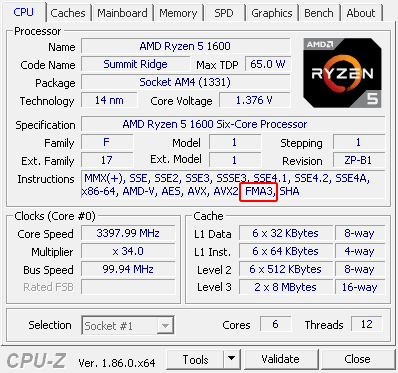In an interesting find, it has been discovered that AMD processors based on ZEN architecture actually support the latest iteration of FMA, the FMA4-instruction set. The theory is that the FMA3 supplement instruction set would have been disabled for unknown reasons, however as it seems, it at the very least is partially working and active.
FMA is short for fused multiply-add and was added to the 2012 AMD FX series processors and have seen iteration changes leading up-tp FMA 3 and FMA4. FMA is a floating-point multiply-add operation performed in a single step, with a single rounding. It is the equivalent of the Intel AVX AVX instruction set, but more efficient and FMA4 should be really fast. Officially FMA4 is 33% faster than FMA3, however, it is not supported in the operating system, likely it was left disabled due to bugs or perhaps stability issues as hey, there is a primary reason for it to remain disabled.
As it now seems, Level1Techs tested this with Zen processors by running an adapted script that sends FMA4 instructions to the processor. The FMA4 task fired off at the processor surprisingly did not get refused and got executed successfully. It's an interesting find. Meanwhile, CPUID still states it is not supported/detected.
FMA4 instruction set hidden, but is working on AMD Zen processors



